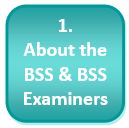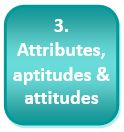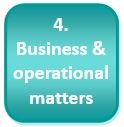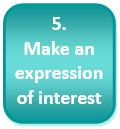It starts with your existing level of knowledge and your understanding about boat systems such fuel, electrical and gas systems.
The course covers the application of BSS examination checking procedures and presumes prior knowledge of boat systems, and so we expect you’ll already know the difference between an spark-ignition engine and a compression ignition engine, and that you’ll be able identify a fuel supply hose from a hydraulic hose.
In addition to the right attributes, aptitudes and attitudes (see link below), you will also have a mix of the preferred qualifications and practical experience ,although this is no guarantee that you will pass the course, but it will be a huge help.
You will routinely use email, have regular access to the internet and be comfortable and proficient at using computer applications.
You will also agree that good customer service and relationships will both be good for your business, and it will also help your customers to better appreciate those risks and hazards associated with the boats’ fuels, engines, systems and appliances.
You must have pre-existing technical knowledge
A good working knowledge of boat systems is essential if candidates are to complete the course successfully.
The BSS New Examiner Training Programme is not designed to teach boat construction methods, marine engineering skills or other basic information concerning the nature of boat systems. The course assumes that all candidates already have experience of boats and their systems. Trainees are expected to have the ability and willingness to self-learn to fill any gaps they feel they may have.
More specifically you must have a good working knowledge of:
- inboard petrol and diesel engines, outboard engines and their fuel systems;
- diesel fuel heating arrangements;
- 230v (AC) and 12/24v (DC) electrical systems;
- LPG systems and a range of appliances (including cooking and heating).
Relevant qualifications
Typically examiners will have GCSEs (or equivalent) at A*-C in Maths, English and a Science.
Relevant academic or vocational qualifications are preferred, though not essential. The following marine specific qualifications are accepted as significant to this role:
- BTEC HNCs/HNDs and degrees in Marine Engineering, Boat Design and Production and Marine Technology;
- City & Guilds Certificates in Boat Building, Marine Engineering, Marine Craft Fitting, Maintenance and Support;
- NVQ/SVQ in Marine Engineering, Boat Production and Support Services, Boat Building and Maintenance, Boat Outfitting, Boat Repairing and Marine Engineering Operations.
- BTEC National Certificate Manufacturing Engineering (Marine) and National Diploma in Engineering (Marine).
We are also interested in equivalent qualifications, for example those indicating a familiarity with petrol or diesel engine, electrical, fuel or LPG systems.
The mixture of experience and qualifications will be assessed for suitability at the time of any application to become an examiner.
Previous experience of the inland waterways marine industry
We are looking for practical or hands-on experience in an area of the inland waterways marine industry. Namely; a minimum of three years relevant experience in a marine environment. Such experience can be found in, professional marine surveying, chandlers/equipment supplier, marina service facility, boat builder/repair yards, boat hire companies; working for marine plant maintenance contractors/navigation authority direct labour teams; teaching a marine engineering subject; or an engineering trade in the armed forces with marine involvement and/or merchant marine services.
Your practical experience will have given you a good general grounding on the range of boat systems including an appreciation of the categories of risk associated with diesel, petrol, gas or DC/AC electricity.
You will be at ease using computers, and/or mobile devices with the means to connect to the internet
BSS recording practices, reporting processes, instructions, advice and messages from the BSS Office are fully focused upon online systems and communications. Training and development is also soon to be delivered to a significant extent online.
The successful examiner will be one who can make computers and mobile devices with email/internet connectivity work to their best advantage. It is now an essential skill and unavoidable expectation of the modern, professional examiner.
If you are still keen to apply to become a BSS Examiner then please read all the information available to understand the considerable demands and responsibilities that come with the role. Please note that until the next New Examiner Training Programme is announced, we are not currently accepting expressions of interest.
 |
 |
 |
 |
